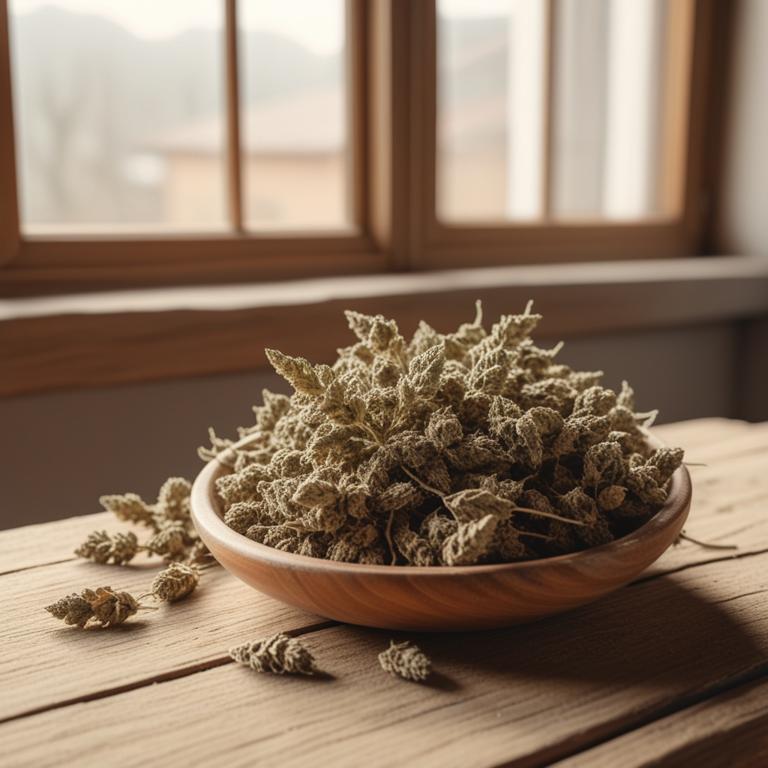Updated: Dec 1, 2024
Natural Remedies for Insect Bites: Causes, Medicinal Herbs, and Herbal Preparations
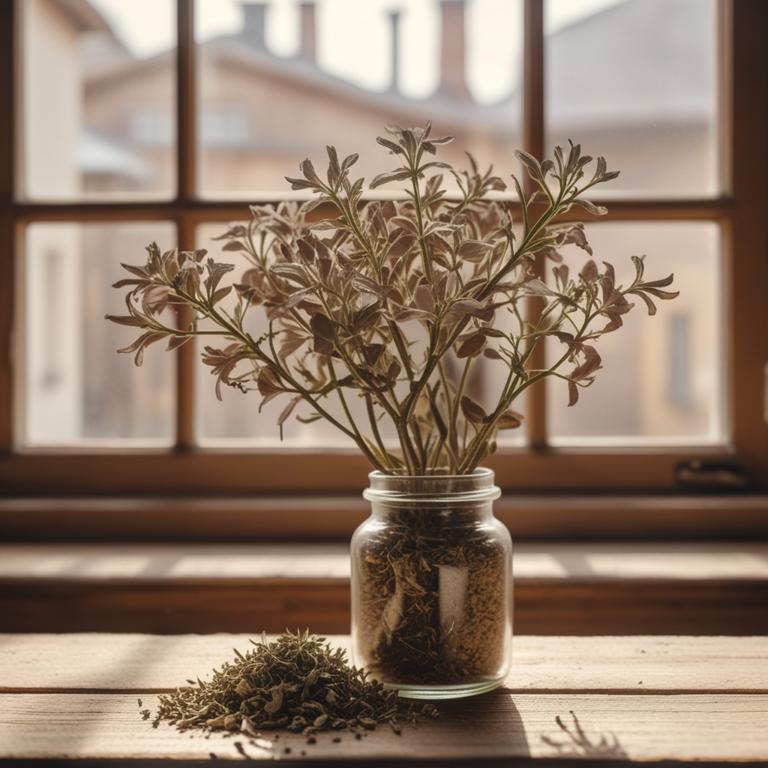
Insect bites can be a nuisance, causing discomfort, itching, and swelling.
They can also lead to more serious issues, such as an allergic reaction, which can disrupt your daily life. Insect bites are usually caused by mosquitoes, flies, and bees that bite or sting in self-defense. When they pierce your skin, they inject venom or saliva, which triggers an allergic reaction and leads to the symptoms we experience. Herbal remedies can be a helpful way to soothe and calm the skin after an insect bite. Calendula, also known as marigold, has anti-inflammatory properties that can reduce swelling and itching.
Aloe vera is another popular remedy, known for its soothing and moisturizing properties that can calm the skin. Plantain, a common weed, has been used for centuries to treat insect bites, as it has anti-inflammatory and antiseptic properties. To use these herbs, you can make a tea by steeping dried calendula or plantain leaves in hot water. You can also apply aloe vera gel directly to the affected area. Another option is to make a paste by mixing plantain leaves with water and applying it to the bite.
These herbal preparations can provide relief from the discomfort and itching caused by insect bites.
Table of Contents
- What are the primary causes of insect bites?
- What are the benefits of employing herbs to alleviate discomfort from insect bites?
- What are the primary medicinal herbs used to treat insect bites?
- What are the most popular herbal remedies for insect bites?
- Which herbs are contraindicated for use with insect bites?
- FAQ
What are the primary causes of insect bites?
The main causes of insect bites are mainly due to the activities of certain insects that feed on human blood.
Mosquito bites are a result of female mosquitoes searching for a source of protein to lay eggs, and they use their long, slender mouthparts to pierce the skin. Bed bugs, on the other hand, feed on human blood, especially at night, and their bites can cause itchy and painful welts.
Fleas, which are often found on dogs and cats, feed on the blood of their hosts and can also bite humans. Ticks, which are attached to their hosts using their mouthparts, feed on the blood of animals and humans, and their bites can transmit diseases like Lyme disease. Chiggers, also known as harvest mites, feed on the skin cells of their hosts, causing intense itching and discomfort.
These insects bite for various reasons, including to feed themselves, to lay eggs, or to survive, and their bites can cause a range of reactions in humans, from mild discomfort to severe allergic reactions.
What are the benefits of employing herbs to alleviate discomfort from insect bites?
Using herbs to treat insect bites is a great natural remedy.
They can help soothe the pain and itching of bites. Some herbs have anti-inflammatory properties, which reduce swelling and redness. This makes the bite look less noticeable and feels more comfortable. Herbs can also help calm the skin and prevent infection.
This is especially helpful for bites that can get infected easily, like mosquito bites. They can also help reduce the risk of an allergic reaction. Some herbs have antiseptic properties, which kill bacteria and other germs that can cause infection. This keeps the skin clean and healthy.
Additionally, herbs can help calm the itching and burning sensation of bites, making it easier to sleep at night and get back to normal activities.
What are the primary medicinal herbs used to treat insect bites?

When you get an insect bite, it can be itchy, swollen, and painful.
But some herbs can help soothe and calm the skin. Calendula officinalis, also known as marigold, has anti-inflammatory properties that can reduce swelling and redness. Its soothing effects can also calm the itchiness and discomfort. Hypericum perforatum, or St. John's Wort, has antiseptic properties that can prevent infection and promote healing. It can also help reduce pain and inflammation.
Arnica montana is known for its anti-inflammatory and pain-relieving properties, making it a great herb to apply topically to insect bites. Aloe barbadensis, or aloe vera, is famous for its cooling and soothing effects. It can calm the itchiness and reduce redness, making it a great natural remedy for insect bites. Plantago lanceolata, or plantain, has anti-inflammatory and antiseptic properties that can help soothe and heal insect bites. It can also help reduce the risk of infection and promote faster healing.
These herbs can be applied topically to the affected area to provide relief from insect bites.
What are the most popular herbal remedies for insect bites?

Herbal preparations can be very helpful in soothing insect bites.
One way to use them is by making a decoction. A decoction is made by steeping herbs in boiling water, and it's great for bites that are itchy or inflamed. The hot water helps to release the active ingredients in the herbs, like aloe vera or calendula, which have anti-inflammatory properties that can calm down the skin. You can also make a tea by steeping herbs in hot water, but then letting it cool down. Tea is a great way to apply a soothing liquid to the affected area. For example, a tea made with chamomile or peppermint can help to calm down the skin and reduce itching. Herbal creams are another good option.
They're usually made by mixing herbs with a base, like coconut oil or beeswax, to create a smooth paste. Creams are easy to apply and can be used to soothe bites on hard-to-reach areas, like your back or legs. Creams made with cooling herbs like menthol or eucalyptus can help to numb the skin and reduce itching. Herbal salves are similar to creams, but they're usually thicker and more greasy. They're great for bites that are dry or cracked. Salves made with herbs like comfrey or plantain can help to promote healing and reduce inflammation. Finally, herbal tinctures are liquid extracts that can be applied directly to the affected area. Tinctures are usually made by mixing herbs with a solvent, like ethanol or glycerin, and can be applied with a cotton ball or swab.
Tinctures made with herbs like witch hazel or lavender can help to reduce itching and promote healing.
Additional Resources:
Which herbs are contraindicated for use with insect bites?
If you have an insect bite, it's best to avoid using Echinacea purpurea because it can make the itching and swelling worse.
This herb is often used for its anti-inflammatory properties, but when it comes to insect bites, it can actually cause more irritation and discomfort. Ginkgo biloba can also be a problem because it increases blood flow, which might make the swelling and redness of the insect bite worse. This is especially true if you already have a reaction to the bite. It's better to let the body heal on its own rather than trying to speed up the process with this herb. Cinchona officinalis, also known as the source of quinine, is not good for insect bites because it can cause allergic reactions and make the symptoms even worse.
Some people may experience intense itching, redness, and even blistering after using this herb, so it's best to steer clear of it. Vitex agnus-castus, also known as chasteberry, is not recommended for insect bites because it can cause more itching and discomfort. This herb is often used for hormonal imbalances and menstrual issues, but it's not the best choice for insect bites. Rauvolfia serpentina is another herb to avoid when you have an insect bite because it can cause more swelling and itching. It's also known for its sedative properties, but that doesn't mean it's safe to use for insect bites.
In fact, it can make the symptoms even worse, so it's best to stick to other remedies that are gentler on the skin.
FAQ
Are there any specific herbs that can prevent insect bites?
Some herbs, like lemongrass and citronella, are known to repel insects.
These plants release oils that insects dislike, so they tend to stay away. Lemongrass has a strong citrus scent, while citronella is often used in insect repellents.
You can plant these herbs in your garden or use their oils to keep bugs at bay.
Is it safe to use herbal remedies for insect bites during pregnancy?
When it comes to using herbal remedies for insect bites during pregnancy, it's best to be cautious.
Some herbs can stimulate the uterus, which might cause problems. For example, pennyroyal and mugwort have been known to do this.
It's also possible for herbal remedies to interact with other medications or have unknown effects on the developing baby.
Are there any herbs that can reduce the frequency of insect bites?
Citronella oil, found in lemongrass, has natural insect-repelling properties.
It helps reduce the frequency of mosquito bites. Another herb, lavender, contains compounds that may deter insects.
While not foolproof, these herbs might offer some protection when applied topically or burned as incense in areas where insects are present.
Related Articles
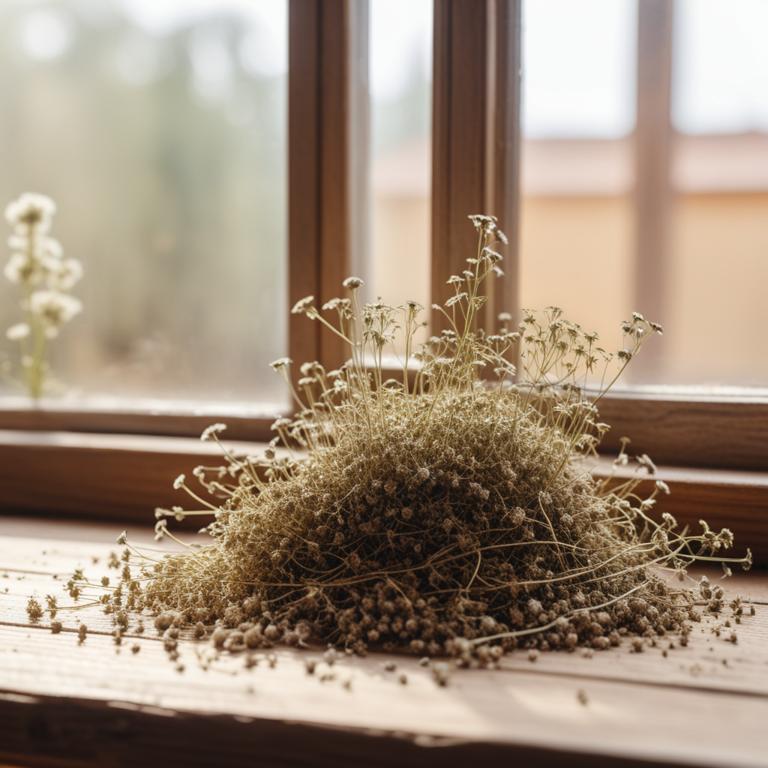
Puffy Eyes: Understanding the Causes and Finding Natural Remedies

Inflamed Mouth Care: Causes, Medicinal Herbs, and Natural Remedies for Healing

Rashes: Causes and Homeopathic Herbal Solutions
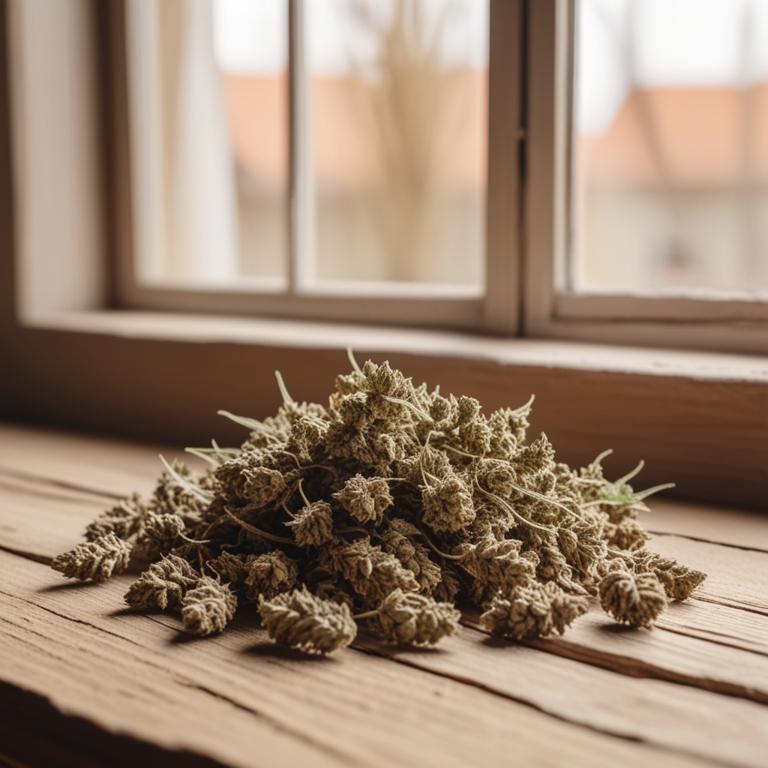
The Causes of Ingrown Hair and How Herbal Preparations Can Help
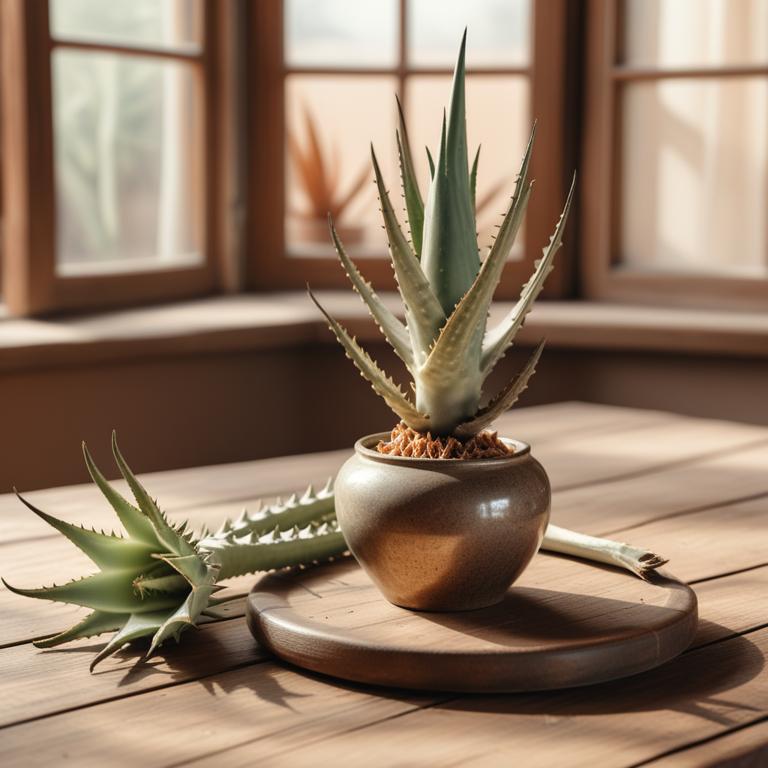
Chapped Lips: Causes, Medicinal Herbs, and Natural Preparations for Soothing Relief






